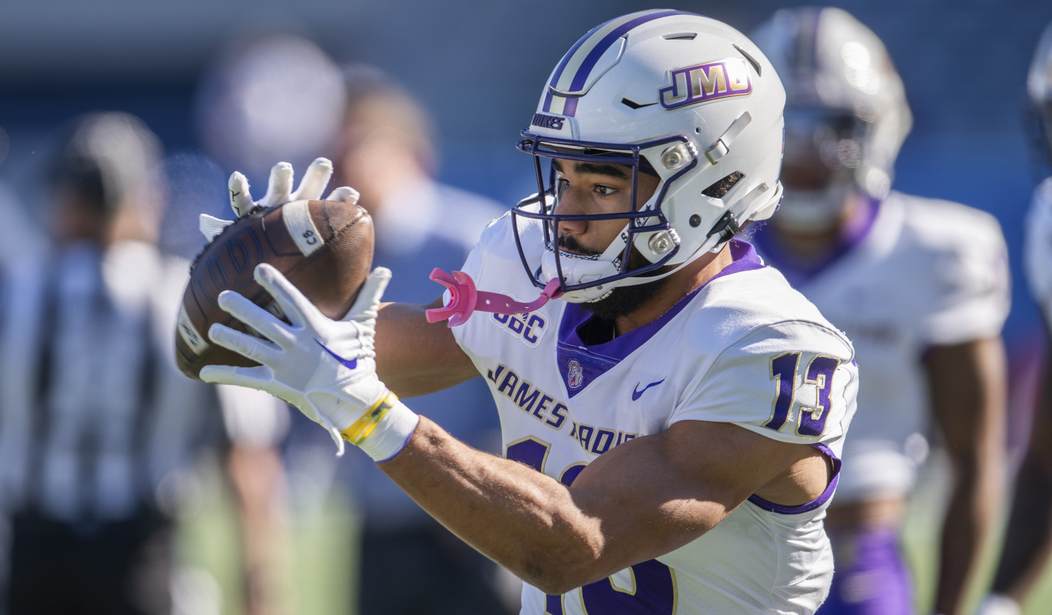We’ve all seen how the NCAA often hews more to the letter of the law than the spirit of the law when it comes to its regulations for college sports. A decade ago, I wrote about the case of Kolton Houston, an offensive lineman for the University of Georgia who the NCAA declared ineligible due to injections his doctor administered following shoulder surgery in high school. It took Houston three years to convince the NCAA to reinstate him.
The landscape of college athletics is littered with the stories of teams and individual players who paid the price for the NCAA’s tone-deaf strictness and refusal to see the human beings behind the regulations. The latest example of this came just a few weeks ago when the NCAA refused to grant postseason waivers to two teams who moved up from the Football Championship Series (FCS, formerly Division I-AA) to the Football Bowl Series (FBS, formerly Division I-A).
The process to fully transition from FCS to FBS takes two years under NCAA regulations, and James Madison University (JMU) and Jacksonville State University (JSU) are in that second year, which means that they won't be full-fledged FBS teams until 2024. However, both teams proved their mettle playing against other FBS opponents and requested waivers to finish the transition this year instead of next.
The JMU Dukes, who finished the season 11-1 and ranked as high as #18 in the AP poll, and the JSU Gamecocks, who ended the season 8-4, more than proved that they could thrive in FBS play. JMU even caught the attention of ESPN, who brought "College GameDay" to Harrisonburg, Va. Ultimately, the NCAA denied both teams’ waivers, which meant that they were ineligible for postseason play.
Flashback: Kolton Houston's Dream Deferred
The NCAA's Division I Board of Directors Administrative Committee said in a statement:
Requirements for members transitioning into FBS are based on factors beyond athletics performance. They are intended to ensure schools are properly evaluating their long-term sustainability in the subdivision. Sponsoring sports at this level requires increased scholarships, expanded athletics compliance efforts, and additional academic and mental health support for student-athletes, and the transition period is intended to give members time to adjust to those increased requirements to position student-athletes at those schools for long-term success.
Division I members continually assess transition requirements, and the board continues to believe that if Division I members do not think the requirements are appropriate, those concerns should be addressed through rules changes rather than waiver requests.
Naturally, both teams were disappointed. "We're obviously disappointed in the outcome of the NCAA's review of our request for bowl relief," JMU said in a statement at the time. "We're saddened for our university community and, in particular, we're devastated for our football program, the coaches, and student-athletes who have orchestrated an amazing season and earned the opportunity."
Virginia Attorney General Jason Miyares even threatened legal action against the NCAA, saying, "This injustice transcends athletics and should not be allowed to stand." In the end, neither JMU nor JSU decided to fight the decision.
Fast forward to the end of the regular season, and there's a bit of schadenfreude in order. It just so happens that there aren't enough bowl-eligible teams to fill out this year's bowl schedule, so the NCAA had to approach JMU and JSU, hat in hand, to ask, "Hey guys, would y'all — umm, this is awkward — want to play in a bowl game after all?" The NCAA also extended an invitation to the University of Minnesota Golden Gophers, who have a 5-7 record, to play in a bowl.
"James Madison and Jacksonville State along with five-win Minnesota are bound for bowls because of a shortage of eligible teams," explains Dave Campbell of the Associated Press. "Those three teams round out the 82 available spots because only 79 teams achieved the six wins necessary for bowl eligibility."
The ecstatic teams celebrated on Twitter/X:
🎳 Let's go bowling, JMU Nation!
— JMU Football (@JMUFootball) November 26, 2023
📰 https://t.co/tDcliFN0Wy#GoDukes pic.twitter.com/uLcbFRCoN8
The Gamecocks are going Bowling!!@JaxStateFB has earned a Bowl bid in its 1st season in FBS and we want you to be there!
— Jacksonville State Athletics (@JSUGamecocks) November 27, 2023
Fill out the form at the link 👇 to reserve your seats NOW!
🔗 - https://t.co/r5X0uAU2cU#HardEdge I #EarnSuccess pic.twitter.com/vbeQjbJPrN
Minnesota head coach P. J. Fleck was humble yet grateful, saying, “We’ll always accept a bowl bid — always. There’s so many beneficial things to a bowl game, with practices, with development. To be honest, we might be our best football team in a month if we get everybody back.”
What does it say that a team with a losing record received a bowl bid? Yeah, there are obviously too many bowl games, and that's another story for another time. But it's also a testament to the weirdness of this college football season that we wound up not having enough teams that finished with a record of .500 to play in bowls.
It's also telling that the NCAA reached out so quickly to JMU and JSU after slamming the door in both teams' faces. There's no record of the NCAA apologizing, so we can only guess that it approached JMU and JSU as if nothing ever happened. It's good for the Dukes and the Gamecocks, as well as the Golden Gophers, but once again, the NCAA is walking around with egg on its face.










Join the conversation as a VIP Member